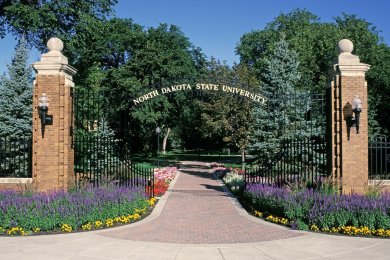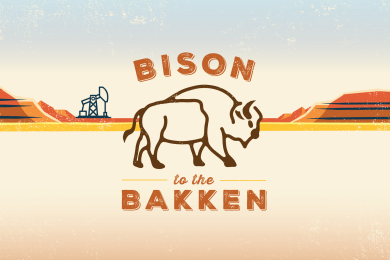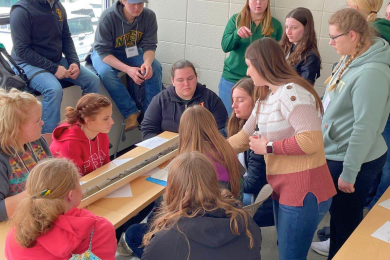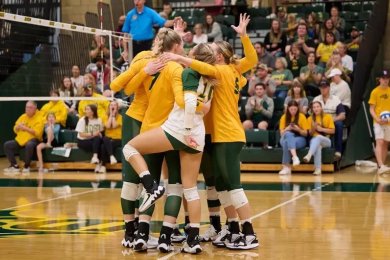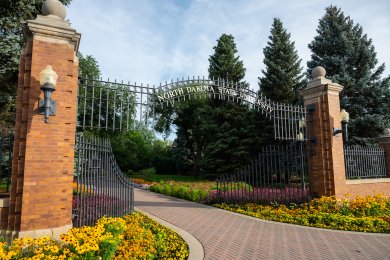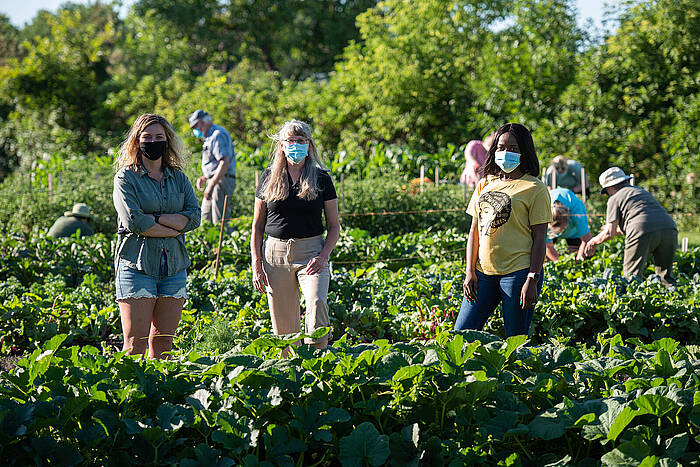
At NDSU, students can study the fundamental issues of race, equity and social justice.
For example, Master of Public Health program students fully examine those subjects in three courses taught by associate professor Mary Larson. That’s especially true of her Promoting Health through Policy, Systems and Environment course.
“During that course, students take a deep dive into social justice and health equity, which includes topics of race, ethnicity and poverty,” Larson said. The course is required for MPH students with a community health sciences specialization.
According to Larson, public health functions best when strong collaborations are developed to address such social topics as violence, poverty, housing, education, transportation, access to affordable health care, quality childcare, healthful food, and racial inequities.
“Public health is concerned about the ‘root causes’ of the problems under this umbrella of concerns,” said Larson, noting her goal is to “teach to transform how students see issues and potential solutions.”
Some of Larson’s students describe the courses as life-changing experiences.
“I can honestly say the classes helped me find my calling in policies, systems and environmental work with communities in need,” said 2020 MPH graduate Tia Schmitz, who is an NDSU Extension family nutrition agent in Richland County. “The courses helped me be strong enough in myself and in my knowledge to have tough conversations with co-workers, family members and government officials.
“If we are not in this together – supporting one another, helping one another, being an ally, speaking out against oppression and doing what we can to stop it – we can never call ourselves, or America, great,” Schmitz said.
Maryann Allen, BS ’14, MPH ’16, is the director of a non-profit organization that assists New Americans in the Fargo-Moorhead area. She said the courses helped her understand systemic racism and inequities.
“I had a complete paradigm shift and started to assess and respond to situations differently,” said Allen, who is an African immigrant. “I was so empowered to do something about my newly discovered information that I developed a desire to work with policies. I was provided with the tools to create the grassroots transformation I wanted to see.”
Petra One Hawk, MPH ’16, is the director for the Tribal Aging and Community Services Agency for the Standing Rock Sioux tribe. The program provides nutritional services for elders age 60 and older. By leveraging resources and working with outside agencies, the program creates pathways to provide healthy food.
“The courses set the tone for my MPH. The experience was transformative to say the least and very healing for me,” One Hawk said.
“They really raised my awareness of how important policy is to public health,” she said. “Policy creates the systems and the environment that impacts the lives of individuals and communities. For example, in medical school we were taught to tell individuals if they eat healthy and exercise, they can manage or prevent diabetes and other health issues. However, if they live in a food desert, how can they do so if they don't have access to healthy foods? How can they exercise if there is a shortage of housing or they don't have access to safe spaces or maintained areas in which to exercise?”
Megan Myrdal, now a director of development for the NDSU Foundation, sees the course as a call to work for positive change.
“I saw the world differently after taking the course,” said Myrdal, MS ’15. “You don’t just see an individual and their actions – you see a system and environment that shapes a person’s life and choices. After the course, I helped to co-found a farmers’ market in Fargo, the Red River Market, and a non-profit organization called Food of the North. The class gave me a new way of seeing the world and empowered me to take action to make change in my community.”
Larson’s personal interest in social justice issues arose from hearing her uncle’s stories about his 17 years of missionary work in Guatemala. She later spent five weeks in that country as an undergraduate student.
“My experiences, particularly in Guatemala, changed me. My brief immersion in, and witness to, extensive poverty and the systemic challenges that indigenous people faced lit a fire inside of me. It eventually led me to public health, and in particular, social justice,” said Larson. Before joining the NDSU faculty in 2013, she spent 25 years in professional roles with the most recent as a lifestyle medicine provider for New Americans at Family HealthCare, Fargo, for 10 years.
“For many of my students, there is a discernible shift in how they look at problems,” Larson said. “They learn about partnering with people, accepting them for where they are right now, affirming their strengths and having compassion and empathy.”

